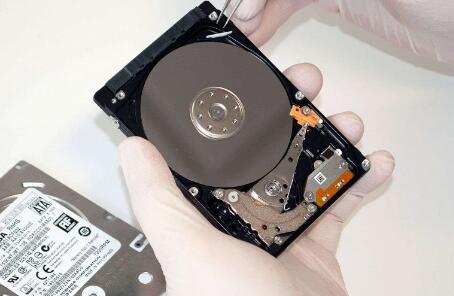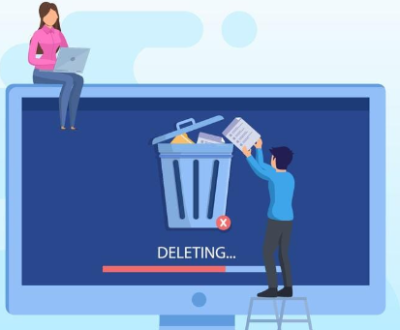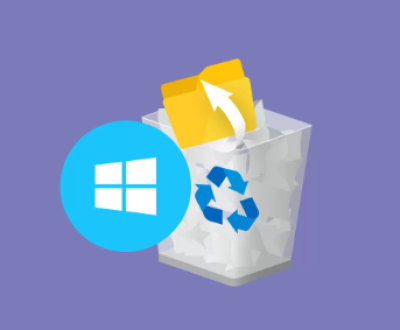Miami, a city known for its cultural diversity, booming tech scene, vibrant arts community, and bustling economy, has steadily become a digital powerhouse in the southeastern United States. From tech startups in Wynwood to major financial institutions in Brickell and healthcare facilities in Coral Gables, the digital infrastructure underpinning these sectors relies heavily on data stored across myriad devices especially hard drives.
But with this digital dependency comes risk. Data loss can result from numerous factors, including mechanical failures, human error, power surges, or natural disasters like hurricanes. Whether it’s a graphic design studio that loses its project files, a real estate firm that misplaces critical client documents, or a medical clinic that accidentally deletes patient data, the need for reliable hard drive data recovery in Miami has never been greater.

1. Mechanical Failure
Hard disk drives have moving parts that can wear out or become damaged. Common mechanical issues include:
Head crashes
Motor failures
Damaged platters
Actuator arm issues
Mechanical damage often requires a cleanroom recovery environment—especially critical in a humid city like Miami.
2. Logical Errors
Logical failures refer to issues with the file system or software, including:
File corruption
Accidental formatting
Partition loss
Virus or malware attacks
These are more likely recoverable using software tools, provided the physical drive is intact.
3. Electrical Damage
Power surges—especially during Miami’s summer storms can fry hard drive components. Overvoltage can corrupt data or damage the drive’s controller board.
4. Human Error
Mistakenly deleting files, reformatting a drive, or overwriting data are among the most common causes of data loss—typically recoverable if action is taken swiftly.
5. Environmental Damage
Miami’s coastal climate and hurricane season pose a significant threat. Flooding, high humidity, and heat can lead to rust, corrosion, and circuitry damage, particularly in improperly stored or cooled systems.
Assessing the Situation: What to Do First
When data loss occurs, time and decision-making are critical. Follow these steps immediately to maximize your recovery chances:
Stop Using the Drive
Continued use could overwrite the data, making recovery impossible.
Do Not Attempt to Repair Physically Damaged Drives Yourself
Opening a drive outside of a certified cleanroom can cause irreparable harm.
Identify the Type of Failure
Is the drive making unusual noises? Likely mechanical.
Can your computer detect the drive? If yes, the failure might be logical.
Was the damage caused by water, heat, or electrical issues?
Disconnect and Store Properly
Keep the drive in a static-free, dry, and cool location. Avoid shaking or mishandling it.
Contact a Professional Recovery Service
Particularly in physical or complex logical cases, professional help in Miami is recommended.
Professional Hard Drive Recovery Services in Miami
Miami is home to numerous reputable data recovery companies, many of which are equipped to handle advanced recovery procedures in certified cleanroom environments.
What to Expect from a Professional Recovery Provider
Free Diagnostic and Evaluation
Most local firms offer no-obligation diagnostics. They’ll evaluate your drive and provide a quote.
Secure, Certified Cleanrooms
Especially for mechanical failures, Class 100 cleanrooms ensure no dust particles interfere with the delicate internals.
Advanced Recovery Tools
Using proprietary hardware and software, these services can retrieve data from drives that traditional software cannot access.
No Data, No Charge Policies
Many companies follow a policy where payment is only due upon successful recovery.
Data Privacy
Choose firms that comply with standards like HIPAA (for medical data), SOC 2 (for business compliance), or ISO 27001 for information security.
Local Providers to Consider in Miami
While specific endorsements are outside the scope of this guide, many firms operate across Doral, Downtown Miami, Coral Gables, and even Miami Beach. These include:
National recovery chains with Miami offices
Boutique firms specializing in specific industries (media, legal, healthcare)
Emergency and 24/7 recovery specialists for critical failures
Look for:
Cleanroom certification
Track record with your type of failure
Customer reviews from local businesses
DIY Recovery for Logical Failures
If you’re confident the issue is software-related and not physical, you may attempt recovery yourself. Common scenarios include accidental deletion, reformatting, or file system errors.
Recommended Tools (Use with Caution)
Recuva: For simple recovery on Windows systems.
TestDisk: Excellent for partition recovery.
PhotoRec: Great for recovering media files.
Disk Drill: Offers a user-friendly interface.
R-Studio: Advanced tool for professionals.
Best Practices for DIY Recovery
Always clone the affected drive before running recovery attempts.
Use write blockers to prevent further data alteration.
Never install recovery software on the drive you’re trying to recover from.
When to Stop and Call a Pro
Clicking or grinding noises
BIOS doesn’t detect the drive
Electrical smells or visible damage
DIY software attempts fail or find nothing
Industry-Specific Concerns in Miami
1. Healthcare
Hospitals and clinics must protect patient records (EHRs) under HIPAA. Any data recovery should comply with strict confidentiality requirements. Many facilities in Miami work with HIPAA-certified data recovery partners.
2. Finance
With fintech rising in Brickell and the Downtown area, financial firms must ensure PCI-DSS compliance. Encryption and chain-of-custody documentation are critical during recovery.
3. Creative Industries
Miami’s booming media and entertainment industry, including digital agencies and production studios, often face urgent needs to recover large-format video, design files, and audio content.
4. Real Estate
Data from CRMs, listings, and contracts are often housed on local drives or laptops. Losing this data can delay closings or lead to compliance issues with financial institutions.
Miami’s Climate and Its Impact on Drives
Miami’s tropical monsoon climate presents unique risks for hard drive integrity.
Key Risks
Heat: Prolonged exposure to high temperatures can degrade drive performance and shorten lifespan.
Humidity: Causes corrosion on internal drive components.
Salt Air: In coastal areas like Key Biscayne and Miami Beach, salt-laden air can accelerate rust and oxidation.
Storms and Flooding: Hurricane season (June–November) brings the threat of water-damaged systems.
Mitigation Tips
Use dehumidifiers in server rooms.
Store drives in anti-static, moisture-proof containers.
Back up data off-site, preferably outside the hurricane zone.
Install surge protectors and UPS systems.
Consider SSDs for portable devices—they’re more resistant to shock and temperature extremes.
Cloud Integration and Off-Site Backups
While hard drives are essential, integrating cloud solutions adds an extra layer of security.
Benefits of Cloud Backup in Miami
Off-site storage shields data from local disasters.
Remote access facilitates recovery even if offices are inaccessible.
Many cloud providers offer geo-redundancy (storing copies in multiple regions).
Popular Cloud Platforms
Google Drive (integrates well with Android and Chromebooks)
Dropbox (used widely in media circles)
Microsoft OneDrive (popular with Office 365 users)
AWS S3 and Azure for enterprise-scale backups
Disaster Preparedness and Business Continuity
In a city prone to natural disasters, data recovery is only part of the puzzle. A comprehensive business continuity strategy includes:
Regular backups: Daily, weekly, and monthly schedules depending on business needs.
Testing recovery procedures: Ensure backups are usable and that staff are trained to restore data.
Backup power systems: UPS and generators to maintain data integrity during outages.
Mobile-ready systems: Cloud-based CRM, email, and document tools allow remote operation if offices are inaccessible.
Cost of Data Recovery in Miami
Factors Affecting Cost
Type of failure: Logical recovery is cheaper than mechanical recovery.
Drive type and size: Larger or encrypted drives may require more work.
Turnaround time: Expedited services cost more.
Extent of damage: Water or fire damage complicates recovery.
Typical Price Ranges
Logical recovery: $100–$500
Mechanical recovery: $500–$2.500
Emergency recovery: $1.000–$5.000+
Always request an estimate and review policies before committing. Look for “no recovery, no fee” guarantees.
Preventative Measures and Best Practices
For Individuals
Back up files regularly to an external drive or cloud.
Shut down systems properly—don’t just unplug or force close.
Use antivirus software and avoid suspicious downloads.
Don’t store drives in hot cars or near sources of moisture.
For Businesses
Maintain a centralized backup strategy.
Assign data integrity responsibilities to IT staff.
Invest in network-attached storage (NAS) with redundancy.
Encrypt sensitive data before backing up or transferring.
Emerging Trends in Miami’s Data Recovery Scene
About us and this blog
Panda Assistant is built on the latest data recovery algorithms, ensuring that no file is too damaged, too lost, or too corrupted to be recovered.
Request a free quote
We believe that data recovery shouldn’t be a daunting task. That’s why we’ve designed Panda Assistant to be as easy to use as it is powerful. With a few clicks, you can initiate a scan, preview recoverable files, and restore your data all within a matter of minutes.

 Try lt Free
Try lt Free Recovery success rate of up to
Recovery success rate of up to









